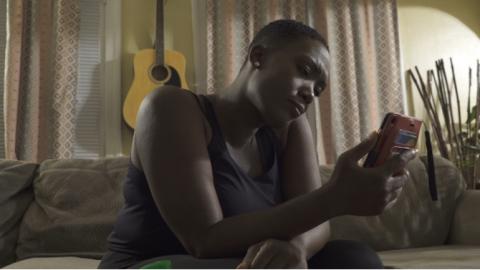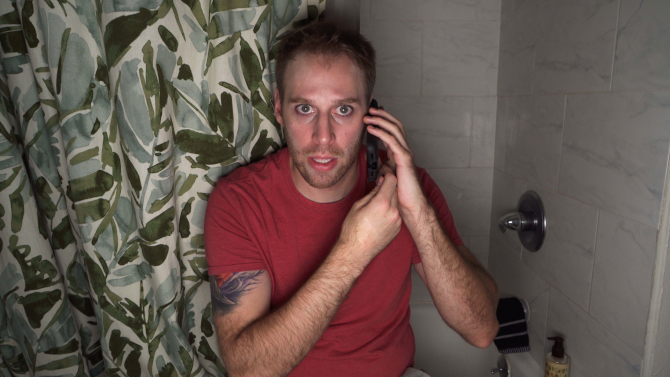‘Distant Tales’ Is a Fascinating Depiction of Pandemic-Era Psychological Turmoil

A movie about the COVID-19 pandemic. Barely three years removed from lockdown, the idea of spending time with a film that explores the psychological torment of the pandemic sounds punishing. Thus, going into Distant Tales, I must admit I was apprehensive. My hesitancy was quickly replaced with genuine horror.
Directed and written by Shem Bitterman (who penned Halloween 5: The Revenge of Michael Myers), Distant Tales is an anthology story about a dystopian future where people are forced to remain in isolation. The horror allegory is evident as the film draws clear inspiration from the pandemic, including topics such as civil unrest, the rise of right-wing nationalism, and the terror of being on a Zoom call with strangers.

Shot during lockdowns, the story hits a nerve as it explores our collective trauma. Despite our differences both culturally and politically, the pandemic forced us to grapple not only with our humanity but also trapped us inside the darkest realms of our minds. Bitterman is fascinated by that human perversion that grows ever more clear as the brain is subject to social and physical isolation. When Distant Tales is at its most successful is when it follows the nuances of psychological warfare. For some characters, they become slaves to their delusions; for others, they fall victim to the white lies they tell themselves. The horror comes not from anything we see, but from the emotions we feel as we reflect on our own experience.
Time is not on Bitterman’s side, as he is forced to reconcile with a societal history that is ongoing. As a result, the story feels reactionary, both to the film’s benefits and drawbacks. The film’s psyche is real, but its understanding of political movements feels dated. In particular, the anthology’s last two segments follow a pharmaceutical testing client, and a veteran falling into a QAnon adjacent online rabbit hole. Both vignettes have their strengths; however, the fast-paced storytelling simplifies such highly scrutinized subject matters. In doing so, it seemingly appears as if the film is trying to play both sides of the political aisle. While I believe this effect to be unintentional, its moral quandaries are felt strongest in its chapter exploring pharmaceutical testing, which comes across as endorsing conspiracy theories about the dangers of vaccines.

Technically, Distant Tales is quite clever in its staging. Telling its story completely through conference video calls allows the horror to be out of the subject frame while still feeling ominous in presence. It also allows the filmmakers to make the most out of their budgetary restrictions and focus entirely on characters and writing. The film is uneven at times, and I found the first half to be more complete in its storytelling.
Despite some narrative shortcomings, Distant Tales is a fascinating artistic expression filled with Twilight Zone-esque atmospheric tension and fun scares throughout.
Author Bio:
Ben Friedman is a contributing writer and film critic at Highbrow Magazine.
For Highbrow Magazine































































































































































































































































































































